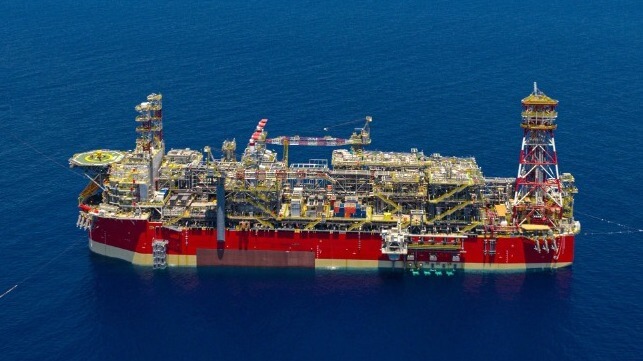Court Ruling Clears the Way for Israeli-Lebanese EEZ Agreement

Israel's supreme court has turned down four separate petitions seeking to block the ratification of the government's new maritime border deal with Lebanon. The deal resolves a years-long dispute over the delimitation of the Lebanese and Israeli EEZs, and it paves the way for the development of two important natural gas fields with billions of dollars in potential earnings.
The deal, negotiated by U.S. envoy Amos Hochstein, hands Israel control of everything on its side of Line 23, one of the several proposed demarcations between the waters of the two states. This gives Israel full control of the Karish gas field, which energy company Energean is bringing online now with a new FPSO. In return, Lebanon gets the right to develop the adjacent Qana gas field, which is bifurcated by the line. The proposed operator for Qana, TotalEnergies, will pay Israel a proportionate amount of the earnings for gas withdrawn from the part of the reservoir that sits on the Israeli side.
The proposal has attracted sharp criticism from the Israeli far right, which has argued that enabling Beirut's gas development program is tantamount to giving money to the Lebanese militia group Hezbollah. The Iran-backed militant group is a designated terrorist organization, and it is deeply integrated into Lebanon's government. Former Israeli Prime Minister Benjamin Netanyahu accused Prime Minister Yair Lapid of "surrendering to Hezbollah’s blackmail” by agreeing to the deal. Four groups and individuals, including the nationalist Kohelet Policy Forum, filed suit to block the agreement. Israel's High Court rejected these petitions Sunday, without providing a detained explanation.

that matters most
Get the latest maritime news delivered to your inbox daily.
Now that legal appeals have been exhausted, Israeli Prime Minister Yair Lapid is expected to sign the deal, once his cabinet votes to approve it. The meeting to discuss it is scheduled for Thursday morning - just five days before the next Israeli election, the nation's fifth in four years.
Once approved, the deal will unlock new gas supplies for the region and open up the potential for exports to European markets, which are hunting in every corner for alternatives to Russian gas. It also could be a financial lifeline for impoverished Lebanon, which stands to earn billions of dollars in energy revenue from Qana.
